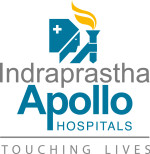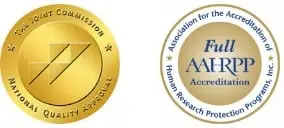Cardiac Arrhythmia
Cardiac arrhythmias, which can be safe, sometimes may feel speeding or fluttering of heart or near fainting spells. However, some heart rhythms can result in unpleasant and perhaps even life-threatening symptoms. Medication, catheter procedures, implanted devices, or sometimes surgery may all be used as cardiac arrhythmia treatments to correct, slow, stop, or regulate irregular heartbeats. Maintaining a heart-healthy lifestyle can help stop the heart damage that can cause some serious cardiac arrhythmias.
A rapid heart is known as tachycardia. While bradycardia is a slow heartbeat. Between 60-90 beats per minute constitute the normal heart rate. Premature heartbeats are the extra heartbeats that happen one at a time, occasionally in patterns that change with the regular heartbeat. Premature atrial contractions or the bottom chamber of the heart may be the source of the extra heartbeats (premature ventricular contractions). These extra heartbeats are important and may frequently indicate a more serious disease so need to be evaluated further. A longer-lasting arrhythmia may be brought on by an early beat, especially in persons with heart problems. Sometimes a weak heart can result from highly frequent premature beats that endure for years. While at rest, premature heartbeats can happen. Stress, intense activity, or stimulants like caffeine or nicotine can frequently trigger rapid heartbeats.
Symptoms
Cardiac arrhythmias may sometimes not manifest any symptoms at all.
Arrhythmia symptoms and indicators generally include:
- A pounding heart (tachycardia)
- A flutter in chest
- Chest heaviness
- Breathlessness
- Anxiety
- A slow heartbeat (bradycardia)
- Breathing difficulty
- Weakness, Lethargy
- Dizziness or Lightheadedness
- Fatigue
- Syncope or fainting or nearly fainting
- Sweating
Causes of Arrhythmias
An irregular heartbeat (arrhythmia) can be caused from a variety of factors, such as:
- Scars from a recent heart attack or a previous one
- Structural alterations in the heart, such as those caused by cardiomyopathy
- Heart artery obstruction (coronary artery disease)
- Extra wire in the heart (accessary connection)
- Elevated blood pressure
- Diabetes
- Excessive thyroid activity (hyperthyroidism)
- COVID-19 infection
- Thyroid gland that is inactive (hypothyroidism)
- Sleep apnea
- Excessive alcohol or caffeine consumption
- Several pharmaceuticals, including over-the-counter allergy and cold remedies
- Genetics
- Usage of drugs
- Worry or tension
- Smoking
Atrial fibrillation (AF). Rapid, erratic heart rate is a result of chaotic heart signals. The problem might only last a short while, but untreated A-fib episodes sometimes cause stroke which is a medical emergency.
Palpitations, or bouts of a hammering heartbeat, are brought on by supraventricular tachycardia which starts and stops suddenly.
Ventricular fibrillation is a form of arrhythmia that develops when the lower heart chambers (ventricles) start quiring or beating at a very high rate of 300-400 bpm hence unable to pump blood out of the heart to the whole body. If left untreated patient may have cardiac arrest.
The fast regular heartbeat known as ventricular tachycardia is brought on by incorrect electrical signals or circuit in the lower heart chambers (ventricles). An old scar from heart attack may be the cause for it. In turn, the body receives insufficient blood pumping from the heart.


